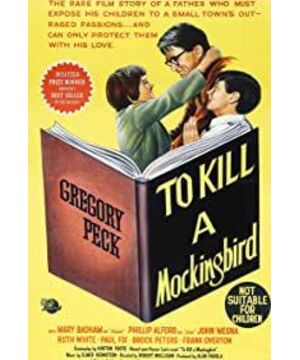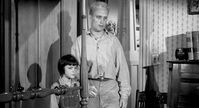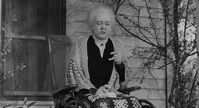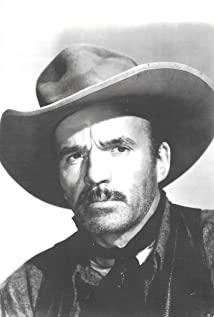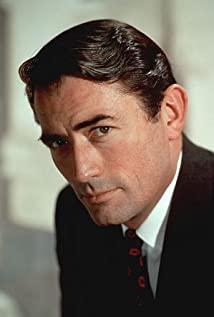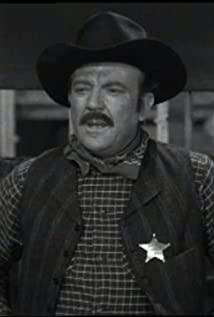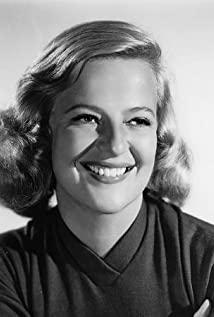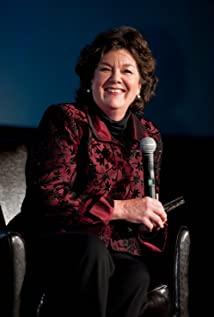In a quiet town, there was a shy person named "Bo". The children were afraid of him and thought he was a terrible weird. There is also a lawyer in the town, a single father of two children, who defended Tom Robinson, a black man, who was recognized as a demon who raped white women, so he was not understood by people. The case ended with the defendant’s loss and the unexpected death of Desperate Tom, but the plaintiff’s father, Mr. Evel, was not satisfied and passed on the hatred to the lawyer’s child. “Bu” saved the child. Finally, Mr. Evel fell down. He died on the knife he prepared.
The development of the story is very quiet, very slow, and you will be quiet when watching the movie. You can't guess what will happen later, just wait so quietly.
The title is very interesting. It's called "Kill a Mockingbird". I watched it while thinking, what does this plot have to do with the robin? Atticus, the lawyer, gave me some eyebrows when explaining the "robins" to the children: the robin is harmless to people, it does not spoil the crops or do other bad things, it only sends people the most beautiful song, so , Killing a robin is a sin.
It makes sense, but it still seems to have nothing to do with the development of the movie story.
Later, I saw that Tom Robinson, a black man, was hated by the plaintiff and many people in the town. So, the day before the trial, Tom was sent to a small remote house for protection. Atticus, the lawyer, sat outside the house all night. In case someone attacked Tom at night. But someone came, the plaintiff and the group of people who hated Tom. The lawyer persuaded them to go back, but it made no sense to them. At this time, the children hiding in the jungle to watch the development of the situation ran over, and the lawyer’s daughter Scout asked a person who came to pick up the matter (the lawyer used to help him solve the problem). (Have a dispute): "Sir, what's the matter? My father helped you before. Are you okay now? The limited inheritance right is really bad. I have no malice. The limited inheritance right is really bad. Your son Potter is a good one. Child, please help me to say hello to him when you go home." Such a naive and innocent greeting seemed like a natural phenomenon, causing the adults who came to pick things up to bow their heads. Potter's father replied to Scout: "Nothing. , I will go home to convey your greetings to Potter." Then, this group of people went back with Potter's father. That night was Christmas Eve.
Many times we try to convince people with reason, but it is emotion, not reason, that can really convince people. The children's innocence, innocence, and innocence revealed their concern for adults. This sentiment made them more ashamed than the lawyer said, so they moved them and made them finally give up the attack on Tom. Also, it is always difficult to commit a crime in front of a child, right? After all, the child's eyes are looking at it. Those wide-open eyes are so pure, will anyone have the heart to be defiled?
The difference between this movie and other law movies I have seen is that it increases the child's perspective. Other movies mostly show the thoughts and actions of adults, and "Kill a Mockingbird" allows us to see the world of adults from the perspective of children, bringing us a different perception.
When looking at the part of the trial, I thought the truth was: the plaintiff, Mr. Iwell, raped and beat his daughter, but blamed Tom. Unexpectedly, the final truth is: Mr. Iwell’s daughter (white) is ashamed that she seduce Tom-a black person, every time she sees Tom, she will remember that she once seduce this black person, and feel that she is a white person. The soul was tainted, so I found an excuse to send Tom to the gallows, and her father, Mr. Iwell, who witnessed her seducing Tom, felt that he was tainted as a white man and wanted to send Tom. Go to the gallows.
What a ridiculous truth! What a ridiculous reason for prosecution! Just because of discrimination against blacks, just because of the superiority of being a white, I want to make up a reason to put an innocent person to death. What kind of absurd thinking is this, and a society where such values are generally formed is even more terrible. It seems that at that time, the racial status gap in the United States was not generally large. Through court-style debates, the truth is clearly before the jury, but the jury still finds Tom guilty. Tom was desperate, even though the lawyer told him that he could appeal in the future, don't be discouraged. But the night when the result came out, Tom still escaped. He escaped from the guard room. The policeman who wanted to stop him missed the shot and he died. Even if an appeal can be made, it is meaningless.
There is no scene replay in the movie, so the information I received is the same as the jury. From this information, Tom is obviously innocent. Why does the jury still think he is guilty? There is only one reason. They, like Mr. Iwell, think it is a great shame for the plaintiff to seduce blacks as a white man. They sympathize with the plaintiff, and they sympathize with the plaintiff who fabricated the facts driven by such values! How sad. Conceptual inequality brings many inequalities in life, and it really hurts the black people.
Atticus, the lawyer in the movie, is very clever. He repeatedly asked for details that did not seem to be related to the case itself: the plaintiff accused the blacks of beating her, then where is her wound? Left or right? Was it face-to-face or from behind? ?
It was in this repeated confirmation that a fact or a fact fabricated by the plaintiff was established: the plaintiff was beaten on the right side of the face and was beaten face to face. The evidence of the black man’s innocence emerged: Let us imagine that if A hits B face to face, if A hits B’s right cheek, he must use his left hand. However, the black Tom's left hand was useless, let alone beating people.
The lawyer's cross-examination was really wonderful. Whether the client is guilty or not guilty, in the case of insufficient evidence, to a large extent depends on the lawyer's cross-examination and cross-examination skills.
Atticus said in the movie: "We are very fortunate that our court is a fair place. Here, everyone is born equal." People who suffer from racial discrimination in other places, if in court, this emphasizes fairness and justice. If justice is still discriminated against, is there anything credible? Isn't the law a child's play? Hearing that sentence is really touching.
When I saw Mr. Iwell fall and die on the knife I prepared, I suddenly understood the meaning of the robin—the black Tom did not hinder everyone’s life, he just quietly did his own thing, necessary I also help everyone at that time. Innocent and killing such a person is like killing a robin. It is a sin and requires retribution-therefore, Mr. Evel, who indirectly killed Tom, is dead.
After watching this movie, I think about the movies I have seen before, and I feel that I am beginning to understand why some lawyers defend the wicked people in our eyes. I remember that after the first jurisprudence class, I asked Hongbo the male god: "Teacher, should a lawyer defend the bad guy? If there is a lawyer defending the bad guy, can I treat this lawyer as someone with no conscience?" The teacher thought at the time. After thinking about it, I replied: "Since the lawyer chooses to defend this person, he should believe that his client is innocent. Therefore, no matter how bad other people think the defender is, the lawyer should believe that his client is Not guilty. Moreover, a person’s guilt or innocence should be judged by evidence, not public opinion conjectures before trial and cross-examination. Do you think the defended person is a bad person, is he really a bad person?" He also said: "Wait someday you will understand this problem, and the first step of our teachers' education for you, even if it is done."
I think about what the male god Hongbo said, and then think about the lawyer who defended Tom, I feel that I understand this problem. Many people in the town think that Tom is a bad person. When they knew that Atticus was defending Tom, they resisted Atticus and even retaliated against the lawyer's children for this. But in fact, they think so and so are the bad guys. Ideas are unfounded public opinion orientation, just as we think that some people are bad people, the truth may not be what we think-like Tom is not actually a bad person. So how do you dig the truth? Rely on lawyers defending the "bad guys."
So, at this point, in my heart, bad guys are not necessarily bad guys, and lawyers who defend "bad guys" are not necessarily big bad guys whose conscience is eaten by dogs. This can be regarded as a perfect end to my first year of studying the Fa.
Finally, according to my written thoughts convention, or to send you a word:
by You for Really Never Knew A man in an until you Stood His-Shoes and walked around in Them
"You can never easily assess a person until you really know him." - —Think about the
phrase "cloth" in the movie. I have heard it many times, and I like it very much, but today I found out that the source is this movie, or in other words, this book.
Good sentence to share with everyone, I hope everyone likes it too.
View more about To Kill a Mockingbird reviews


